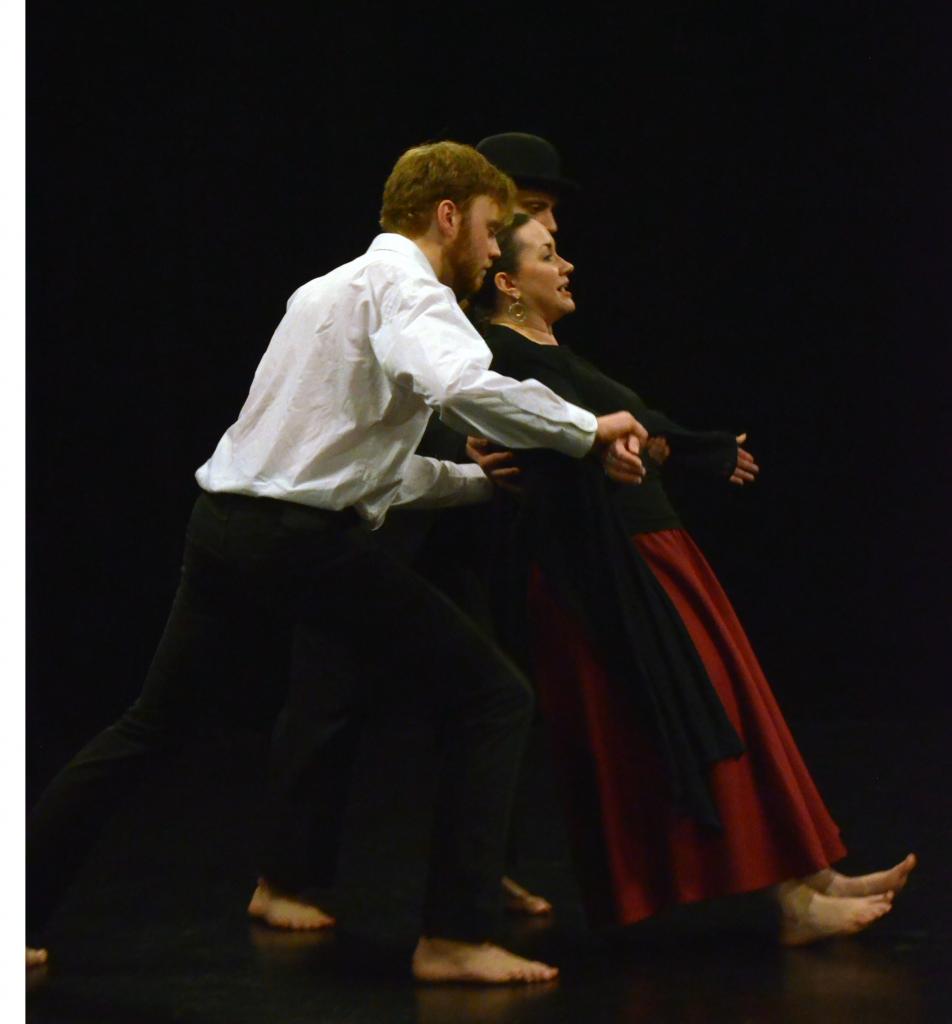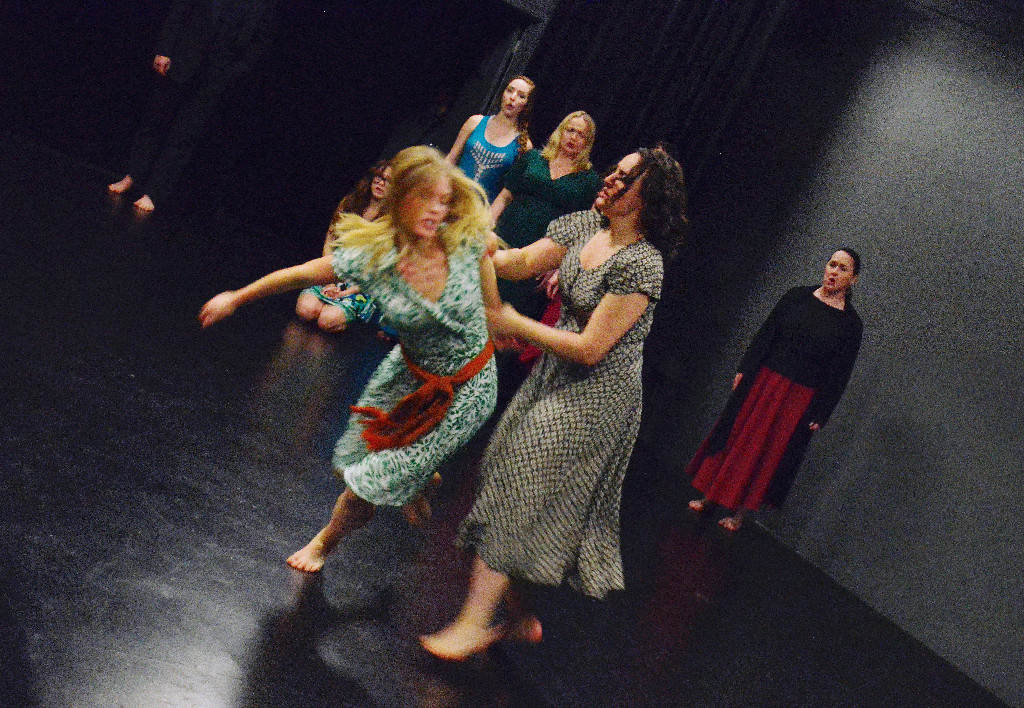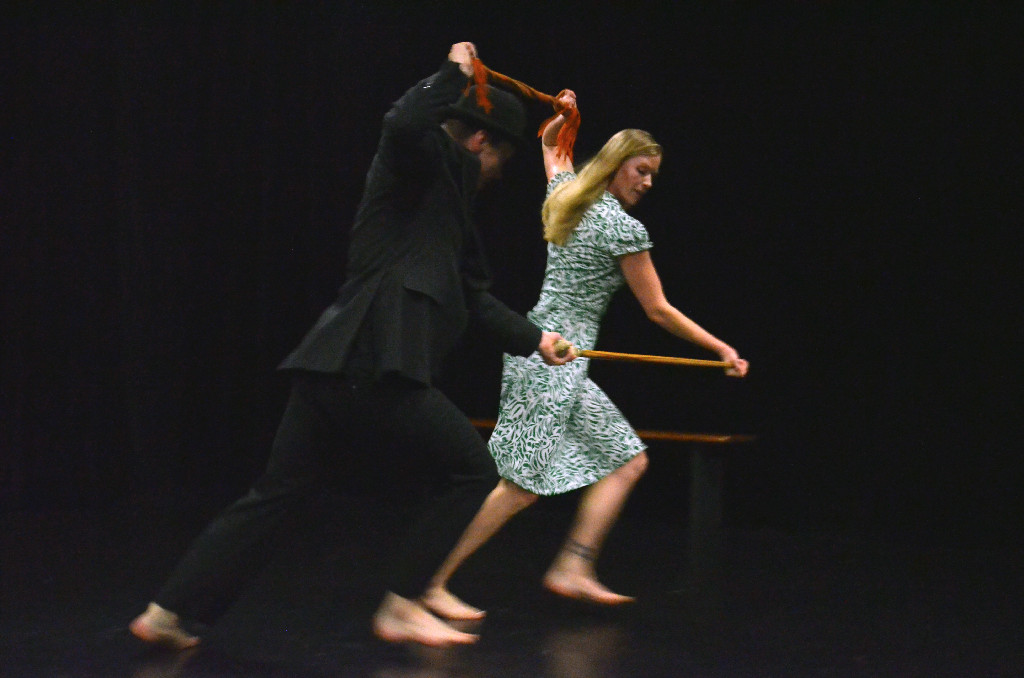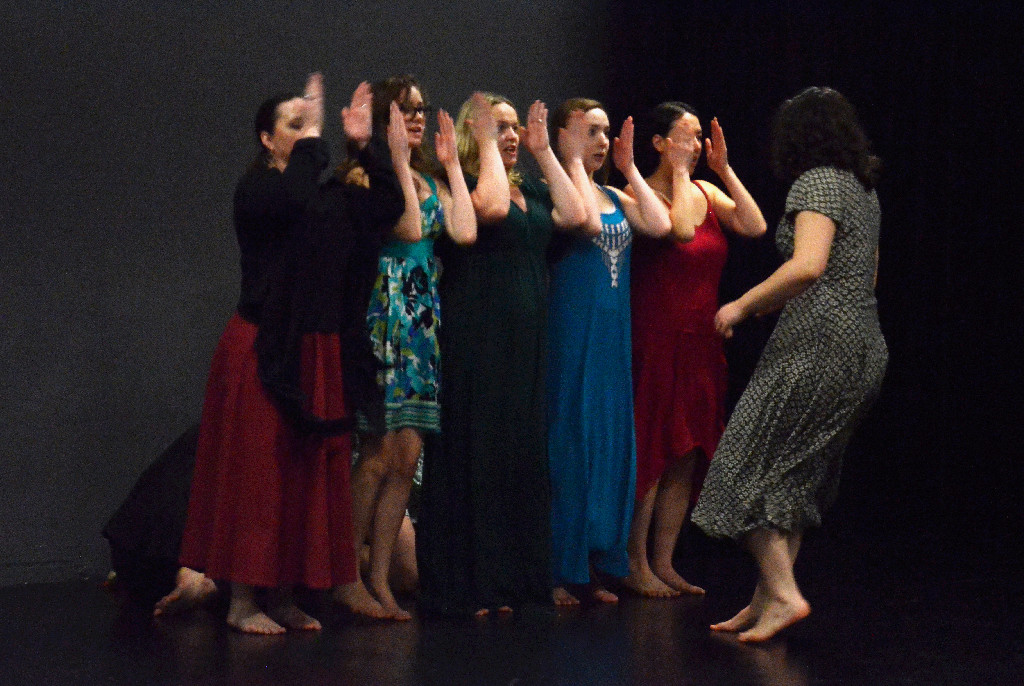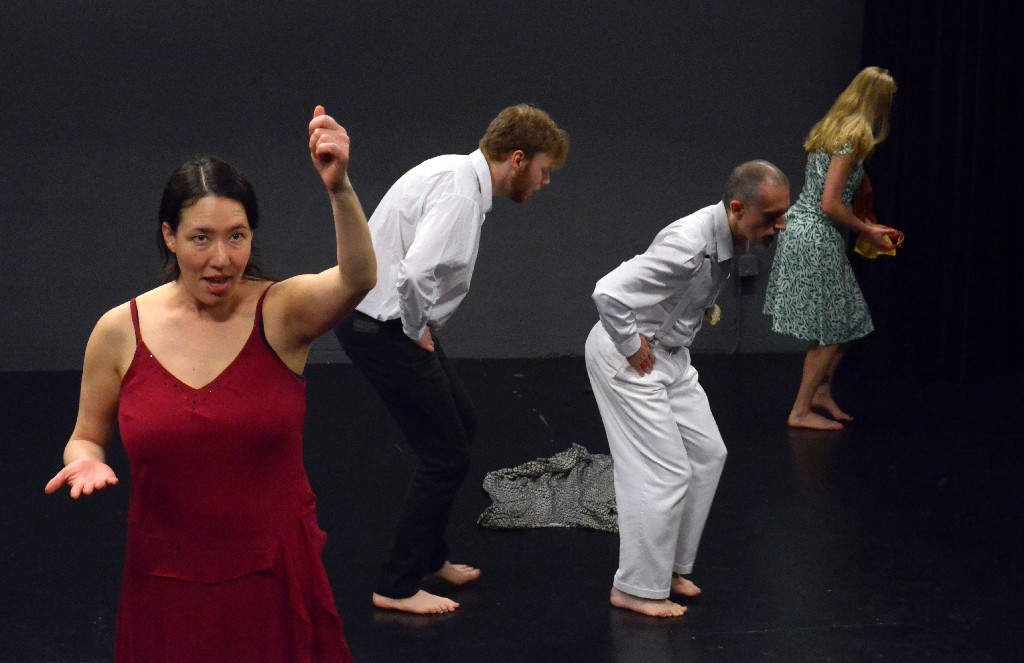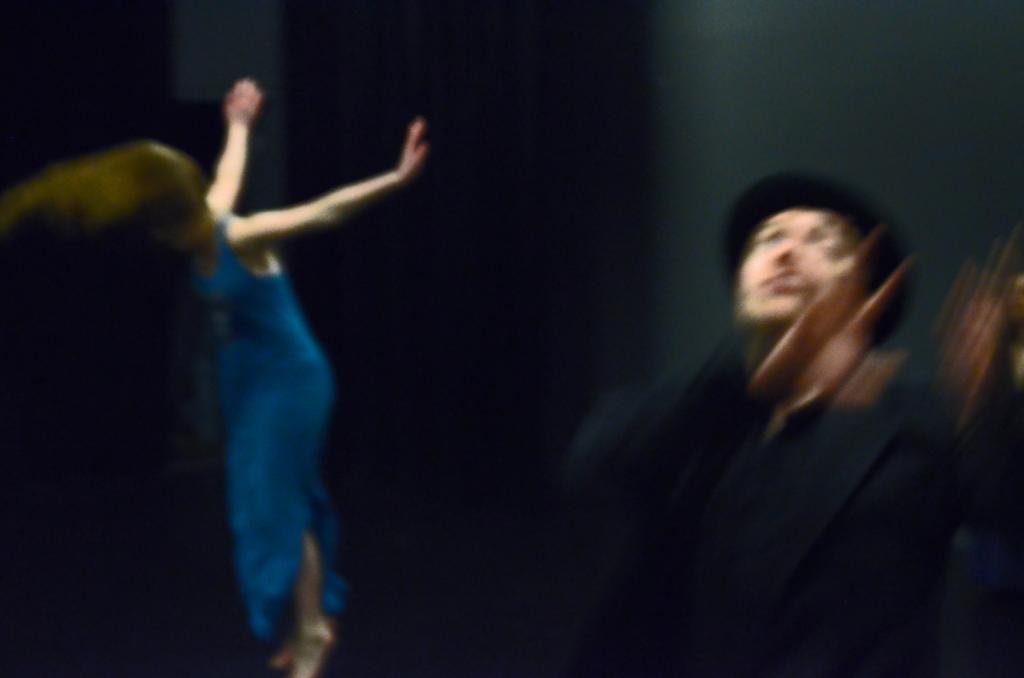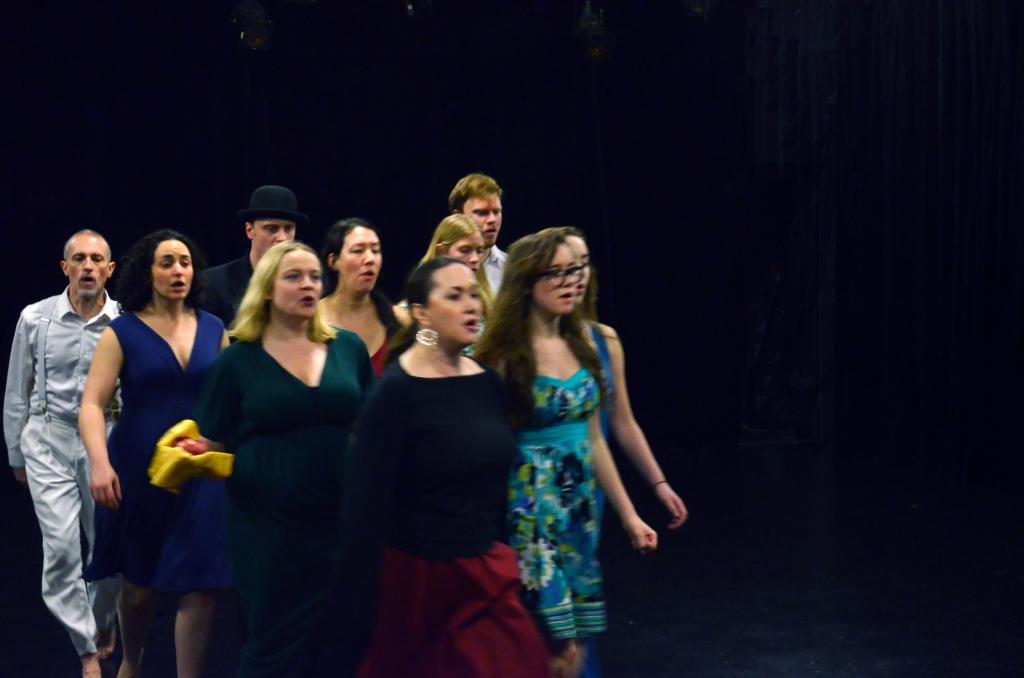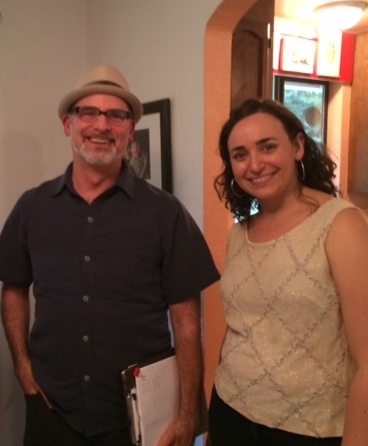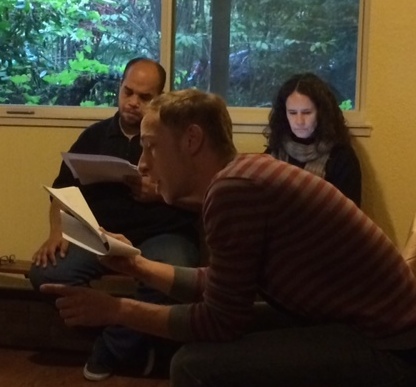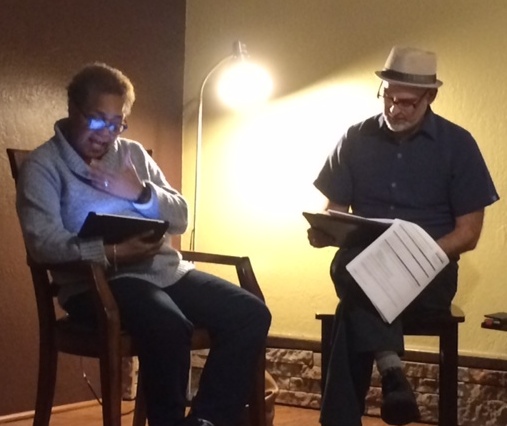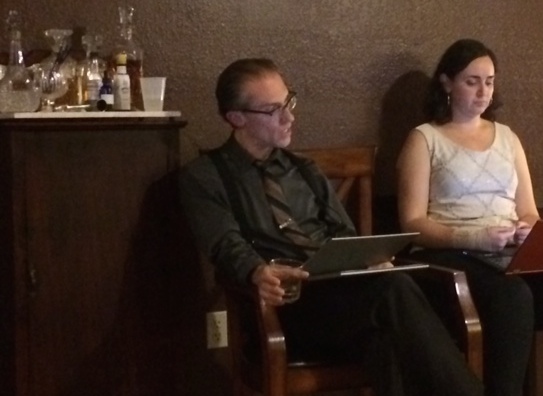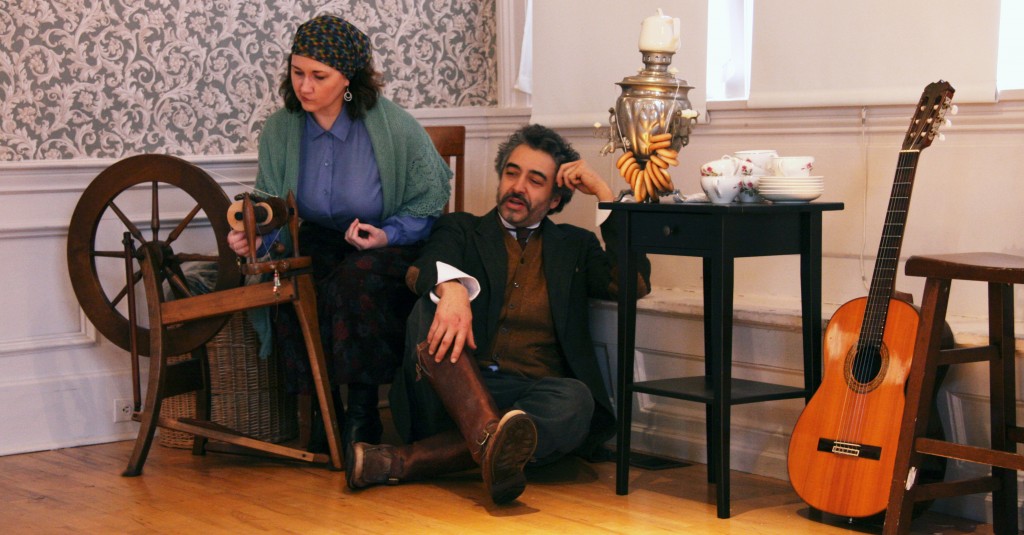
Marina (Zhenya Lavy) and Astrov (Carter Rodriquez) | Photo: Annie Paladino
People’s Choice nominations are still being accepted for this year’s Gregory Awards — through September 4 — and we ask you to consider Uncle Vanya for Best Production when you vote.
Our work doesn’t fit neatly into Tony-style award categories. In fact, almost everything we do falls outside convention. Consider music alone: while APL’s productions are all deeply musical — with sophistication and complexity outpacing most musical theatre — it would and should never be classified in the same category as musicals.
We need your support to be recognized, and anyone can submit a nomination. VOTE HERE! The not-to-be-missed Gregory Awards ceremony is October 20.
Uncle Vanya may not have nabbed reviewer nominations, but we did receive some Gregory Nominator love and appreciation for the work we do. Here are some highlights:
About the production:
I thought staging this production in an old Victorian House was brilliant. I was skeptical about the intimate setting but for a Chekhov play it worked very well.
Ballsy choice to set the show environmentally, in a location that has a limited potential audience. Excellent use of architecture.
For the space, the lights were great. They were low when necessary, warm when they needed to be, and stark enough to make me feel like I was in a dark Russian countryside.
The music was exceptional. They set the scenes up nicely, and the fact that almost all singing was done unaccompanied should be applauded. The actors did a fantastic job and Zhenya Lavy did some beautiful work.”
Not surprisingly, the Vanya music received special attention:
Zhenya Lavy should be recognized for her outstanding direction of the music in Uncle Vanya. The music–sung all in Russian, mostly a capella, in rich 3 & 4 part harmonies, was exquisite and brought so much depth and texture to the production as a whole. Brilliant work!
The music was exceptional. They set the scenes up nicely, and the fact that almost all singing was done unaccompanied should be applauded. The actors did a fantastic job and Zhenya Lavy did some beautiful work.
Superb use of music and song as environment.
This love went to Carter Rodriquez for his brilliant turn in the role of Astrov:
Complex, authentic portrayal of a character that could easily be two-dimensional.
He seemed to understand the dark humor of Chekov.
And, finally, Zhenya Lavy received this acknowledgment for her on-stage marathons as the largely dialogue-free but always-present Marina:
Lovely, natural approach, made all the more compelling by realistic reactions during long periods where she had no dialogue.
Submit your People’s Choice Nomination today — VOTE HERE!



